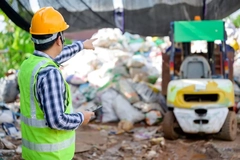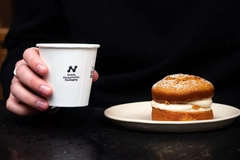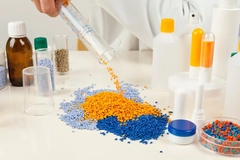Australasia: Certified Compostable Bioplastics detailed in joint paper

09 Jul 2018 --- The Australian Organics Recycling Association (AORA) and the Australian Bioplastics Association (ABA) have published a joint position paper on Certified Compostable Bioplastics. The paper outlines what steps are necessary to have a material bioplastic verified. ABA also offers an online verification program for companies that wish to have their claims of conformance to the Australian Standard verified.
The ABA launched Australian Standard 4736-2006, compostable and biodegradable plastics – “Biodegradable plastics suitable for composting and other microbial treatment” which is known as the “seedling logo” certification system throughout Australia and New Zealand. The seedling logo identifies and differentiates packaging materials as biodegradable and compostable.
Use of the seedling logo will ultimately help the end consumer, customers and municipal authorities to recognize compostable packaging and dispose of it accordingly. Importantly, the seedling logo will communicate the authenticity and independent verification of claims of compliance to AS4736‐2006.
In the case of commercial-scale organics recycling, verification of certification and therefore conformance to AS 4736 is critical for organics recyclers to know that these materials will biodegrade in their facilities without interfering with standard processes and ensure they will not leave any physical or chemical residues in the finished organic output after processing.
The paper states that AORA supports the use of compostable bags and plastics which meet the requirements of AS 4736 and AS 5810 as verified by the Australasian Bioplastics Association allows for safe, effective source separation acceptable for organic resource processing/recycling.
Furthermore, AORA endorses the use of AS 4736 certified materials for the source separation of food waste in the home or commercial premises and also as a suitable alternative to otherwise non-recyclable packaging. Compostable coffee cups, capsules, and compostable bags can all be successfully processed through standard organic recycling processes without concern of contamination.

Conventional plastics such as polyethylene are not certified compostable and are not biodegradable in any context. Varieties of polyethylene containing additives, such as those called oxo-degradable or oxo-biodegradable are not certified compostable and are not suitable for normal organic processing/recycling operations as they are not biodegradable.
These materials are not suitable for organics recycling as they will not biodegrade and will remain in the organic output after processing leaving an unacceptable physical residue. These and their conventional plastic alternatives should not be used for food waste source separation or disposal of or with food waste or organics in a curbside FOGO collection or home composting.
Essentially, the paper explains: Regardless of claims about the benefits of biodegradable plastics, products that do not comply with AS 4736 should not be included in the inputs for organics recycling. To do so may cause unacceptable physical contamination (small pieces of plastic, chips or film) and render the finished organics product worthless.
By Laxmi Haigh










